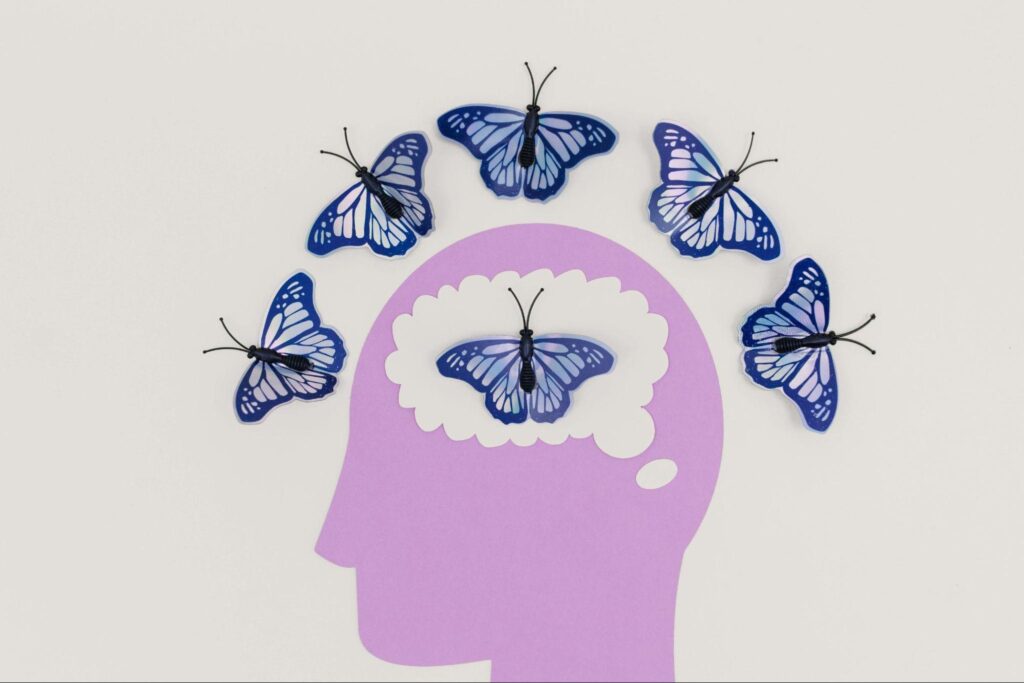
If you’re wondering whether medical cannabis for epilepsy is legal in Australia, the answer is yes. Qualified specialist doctors can prescribe it under certain conditions, typically for specific forms of epilepsy where other treatments have proven ineffective.
However, it’s not as straightforward as it may seem. While medical cannabis is legal, cannabis-based medicines for epilepsy in Australia can be derived from various natural compounds found within the cannabis plant, each with distinct effects on the body.
Below, we delve into two key cannabinoids commonly used in epilepsy treatment—CBD and THC—their potential benefits, side effects, and how they can support Australians living with epilepsy.
What is Medical Cannabis?
The term “medical cannabis” includes any form of cannabis-based product (such as oils, extracts, and flower) that originates from parts of the cannabis plant and is used for therapeutic purposes.
The cannabis plant contains numerous natural chemicals, but cannabidiol (CBD) and tetrahydrocannabinol (THC) are the primary compounds of interest when it comes to epilepsy treatment. These are known as cannabinoids—compounds that interact with receptors in the body to produce various effects.
One major advantage of CBD is its non-psychoactive nature, meaning it does not create the mood-altering effects associated with cannabis use. Research has shown that CBD may have promising effects on epilepsy, providing potential relief for patients where other treatments have failed.
How Medical Cannabis Can Help Epilepsy
For around 30% of individuals with epilepsy, conventional treatments may not adequately control seizures. In these cases, it’s common to explore medical cannabis as a treatment option. Research has demonstrated the potential benefits of plant-derived CBD products in managing specific types of epilepsy, including Lennox-Gastaut syndrome and Dravet syndrome.
Medical cannabis has a long history as a therapeutic agent, dating back to ancient civilizations. However, modern science is only beginning to uncover the mechanisms behind how it interacts with the body. A recent 2023 study led by NYU Grossman School of Medicine researchers revealed that CBD may reduce seizures by inhibiting a molecule known as lysophosphatidylinositol (LPI), which can amplify nerve signals and lead to seizures. This discovery sheds light on a new way that CBD may work to prevent seizures.
Approved Cannabis-Based Medicines for Epilepsy in Australia
At present, Epidyolex is the only cannabis-based medicine specifically approved in Australia for epilepsy. Containing pure CBD without THC, Epidyolex has been recognized by Australia’s Therapeutic Goods Administration (TGA) as a safe and effective option for reducing seizures in certain epilepsy cases.
Studies show promising results; in one recent trial, 214 individuals with epilepsy who used Epidyolex over 12 weeks saw an average seizure reduction of 54%. Epidyolex has been approved for use as an add-on treatment to help reduce seizures in conditions such as Tuberous sclerosis complex (TSC), Lennox-Gastaut syndrome, and Dravet syndrome, and it is suitable for patients aged two and above.
In Australia, Epidyolex can only be prescribed after a patient has tried at least two other epilepsy medications without success. As part of ongoing care, Australian doctors must monitor the patient’s seizure frequency, and treatment may be stopped if seizures are not sufficiently reduced.
The Use of THC in Epilepsy Treatment in Australia
THC-containing medical cannabis for epilepsy may also be prescribed, but it is typically on a case-by-case basis and often as a last resort for patients with severe, treatment-resistant epilepsy. In Australia, a specialist doctor must assess the patient’s medical history, previous treatments, and potential benefits of THC before prescribing it.
For a limited number of Australian patients with severe epilepsy, particularly children, unlicensed cannabis oils containing both CBD and THC have been used under medical supervision. While some evidence supports the effectiveness of these treatments, more robust research is needed to validate their safety and efficacy.
The TGA has not yet fully approved any THC-based epilepsy treatment due to limited research and concerns over potential psychoactive side effects. Until more comprehensive data is available, THC prescriptions for epilepsy in Australia remain selective and controlled.
Can Epidyolex Be Prescribed for Other Types of Epilepsy?
Currently, in Australia, Epidyolex is primarily prescribed for TSC, Lennox-Gastaut syndrome, and Dravet syndrome due to strong supporting evidence for these conditions. Although some preliminary research suggests Epidyolex may benefit other epilepsy types, its efficacy in those cases is not well-established. However, in rare and severe instances where other treatments have failed, Australian specialists may consider Epidyolex as a treatment option.
Access to Epidyolex for other epilepsy types in Australia may also be available through clinical trials, as the TGA has called for further research into the broader application of CBD in treating other forms of severe epilepsy.
Potential Side Effects of Medical Cannabis for Epilepsy
Like any medication, Epidyolex and other medical cannabis products may cause side effects. Common side effects experienced by more than 1 in 10 people include:
- Drowsiness or feeling sleepy
- Reduced appetite
- Diarrhoea
- Fever
- Nausea
Less common but possible side effects include:
- Changes in liver function
- Fatigue and general weakness
- Skin rash
- Sleep disorders and poor sleep quality
- Increased risk of infections
Doctors monitor these side effects, particularly liver function, as part of patient care to ensure the treatment is safe and effective.
Summary
Using cannabis-based medicines for epilepsy in Australia requires careful consideration, as each person’s response to treatment may vary significantly. Medical cannabis, particularly CBD-based treatments like Epidyolex, has shown potential benefits for reducing seizures and enhancing quality of life for those with specific types of epilepsy.
Cannabidiol (CBD) and tetrahydrocannabinol (THC) are the key cannabinoids in medical cannabis to look out for, with Epidyolex being the only TGA-approved medicine for epilepsy that contains pure CBD. Currently, the TGA has not issued a broad recommendation for prescribing medicines that contain both CBD and THC due to insufficient evidence regarding safety and effectiveness for epilepsy treatment.
For those unable to access medical cannabis treatments through the Australian healthcare system, self-referral to licensed medical cannabis clinics may provide a pathway to obtaining these treatments. These clinics, which include services like Alternaleaf, offer cannabis products for a variety of conditions, including epilepsy, under the guidance of qualified specialists. To qualify, patients usually need to have a confirmed diagnosis and evidence of prior treatments for their condition.
If you are interested in exploring medical cannabis for epilepsy in Australia, consider consulting with a qualified doctor or clinic to discuss your options and determine if you may benefit from this treatment pathway.






